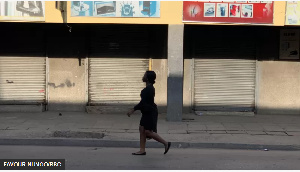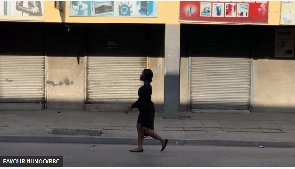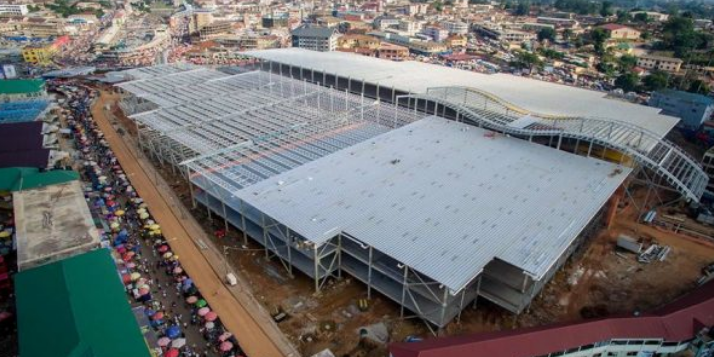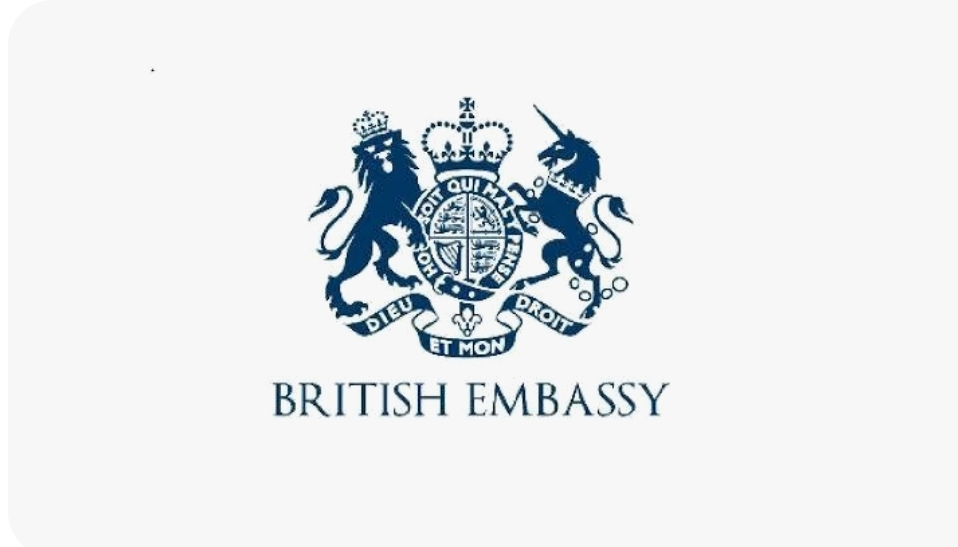Why traders for Ghana lock shops to protest

Some traders for Ghana lock up dia shops to protest against what dem say be worsening economic conditions in de country.
De traders, mainly members of GUTA say dem go keep dia shops locked for five days as part of de protest to register dia displeasure towards govment.
Shop assistant for Accra, Kingsley talk BBC Pidgin say de rate at which de cedi dey depreciate against de dollar dey worry.
“Business no dey go on, if you give customer proforma invoice this week wey dem come the following week to buy de price change.”
“De customer go feel say you dey want cheat and but e be sake of de dollar go up wey if you sell at de price from de previous week you go make loss” he add.
President of GUTA, Dr. Joseph Obeng say de protest go drive home de urgency of de situation to govment.
“We no dey govern ourselves, and if something dey go against you wey e dey destroy your business, then you for make authorities know.”
“Most people know say problem dey for Ghana. De exchange dey go up, but none of dem know de heat as much as de trader.”
Prices increase by over 100% sake of cedi depreciation
Traders for Ghana say de cedi to dollar exchange rate dey cause massive inflation of goods.
“Price of cooker, which cost Ghc600 around January dis year now dey cost Ghc1400… Dis be over 100% increase” Kingsley talk BBC Pidgin.
He explain say sake of dis price increases dem no dey fit make sales, de products dem dey sell no dey move sak of customers no fit buy.
Kingsley admit say de protest go affect he and en family sake of he dey try make sales to take care of dem but de protest be important to send de signal to govment say dem for address de economic issues.
Ghana cedi be worst performing currency in de world – Bloomberg
Latest report by Bloomberg de Ghana cedi currently be de worst-performing currency against de US dollar in de World.
In de latest tracking of 148 currencies across de World, dem project say de cedi depreciate by about 45% dis year.
On Monday alone, Bloomberg report say de cedi depreciate by 3.3% to trade at Ghc11.2750 to $1 dollar.
But according to Ghanaian economist, Professor Godfred Bokpin de cedi depreciate even more on de black market where e dey trade at over Ghc12 to $1 dollar.
Ghanaian Economist Professor Godfred Bokpin talk BBC Pidgin say “dis be consistent with wanna understanding, de dimension dem bring be de comparative analysis currency dem do by tracking currency performance across de World.”
“If you check de data dem out out you no fit challenge dia report, e dey mirror de reality particularly for us wey dey Ghana” he add.
CLICK HERE TO DOWNLOAD PRESS RADIO MOBILE APP
According to de Economist, “de report confirm say domestic policy failure and not external shocks like de Russia-Ukraine, COVID-19.”
Source: www.bbc.com







